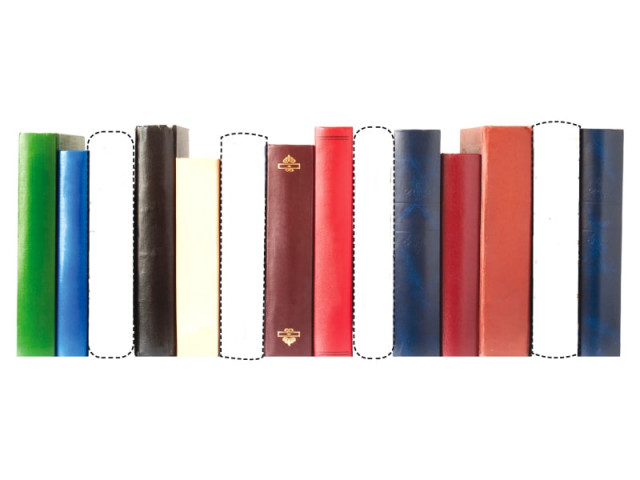Controversy: To teach or not to teach
As the LGS subject ban debate continues, both sides present compelling arguments.

As the LGS subject ban debate continues, both sides present compelling arguments.
The issue of confiscation and ‘banning’ of certain textbooks from a branch of Lahore Grammar School in September has taken a new turn after a public interest litigation was recently filed at the Lahore High Court that challenged the provincial government’s decision.
The debate was triggered by a television talk show that criticized the content that was being taught to grade 7 students in two subjects ‘Science’ and ‘Comparative Religion’ at the Lahore Grammar School situated in Gulberg. The Punjab government formed a committee to review the case. In the process, all material was banned and confiscated.
The petition, filed at the Lahore High Court by Saad Rasool, an advocacy rights lawyer, challenges both the banning of the two subjects and the confiscation of textbooks and study material. It also challenges the legality and the validity of the banning process. Rasool argues that the issue is not solely between two parties, the Punjab government and the school. “It’s a larger issue, one that pertains to the fundamental right to education, right to intellectual ideas and even censorship.”
The show was aired on a private news channel on September 16, which alleged that the school not only taught objectionable content in the two subjects but also that Islamic Studies was not being taught. Following the show, the principal of the school, Nasreen Shah, issued a letter on September 17 to the parents of students clarifying the school’s position. Among other things the letter states that the subject named ‘Comparative Religion’ is ‘essentially a history of religion’. The letter also clearly states that teaching the subject of Islamiat was never abandoned. “We must also clarify that we have NOT abandoned teaching pure Islamiat; we do so from classes 2 -10…,” it reads.
Administrator at the LGS, Qudsia Kamal, explains that the subject of Comparative Religion was being taught for the past 2 years, with the current batch being the third, and this is the first time anyone raised concerns about this. But this year, while some parents had a few reservations, Kamal says LGS administration was already reaching out to parents to help them understand the intention of the decision to teach the subject.
As far as Science was concerned, grade 7 students were being taught the Cambridge Checkpoint Science 2 book, which was being used for the first time at the school. A part of a chapter on the reproductive system raised a few eyebrows but Kamal claims that the teaching plan never included the particular content dealing with human sexual activity. A clarification again was provided by the school on September 17.
But following this, a committee including the secretary schools, chairman Punjab Textbook Board and chairman Punjab Curriculum Authority was formed on the instruction of the Education Minister, after which the matter was taken notice of by the Chief Minister Punjab. Almost a week into the day the issue was first raised, on the orders of the District Coordination Officer, all books and material on the two subjects were confiscated from all shops after which a similar action was taken at the school. According to LGS, as many as 120 books were confiscated.
The Express Tribune spoke to Dr. Raghib Hussain Naeemi, nazim of Jamia Naeemia who was also one of the members of the committee reviewing the subject content. The paragraph in a chapter on reproductive systems was termed ‘vulgar’ and ‘obscene’ by Naeemi. “The book in general is very well written but that one paragraph is absolutely inappropriate to be taught to grade 7 students.” Naeemi, who is also part of a campaign advocating the inclusion of Sexual and Reproductive Health Rights in the curriculum, expresses reservations over the school’s alleged negligence in this regard despite admitting that the administration claims it never intended to teach the content.
For Comparative Religion, he says his review traced ‘factual’ errors in the part comprising of Islamic Studies. While he is of the view that the subject should be taught at a higher level, he believes that if at all the subject is taught at a younger age the content should be factually accurate and “distributed appropriately. The portion on Islam in the subject was much less compared to other religions”. Another reservation expressed by the committee was the formulation of the content for the said subject. “My question is simple: what was the procedure and were there any specialists to compile these notes?” he asks.
Recently, the committee, he says, had stated in its findings that the said chapter be removed from the Science book while new content be compiled for Comparative Religion that should include at least 50% of portion based on Islamic Studies. He said it was also decided that this new content should also be first sent to the committee for review.
But Rasool claims the government did not make these deliberations public despite his requests, calling for greater transparency.
While students at LGS are no longer being taught Comparative Religion and have an alternative textbook for Science, the administration is yet to be officially informed about the committee’s decision.
But the new petition, which had its first hearing on September 30, is still challenging the entire premise of the ban and the process which followed. Rasool believes even if the committee allows these subjects it wouldn’t rectify the malady, which in future may challenge academic and intellectual pursuit by employing “arbitrary, non-transparent and illegal processes”.
Published in The Express Tribune, October 11th, 2013.


1724319076-0/Untitled-design-(5)1724319076-0-208x130.webp)
















COMMENTS
Comments are moderated and generally will be posted if they are on-topic and not abusive.
For more information, please see our Comments FAQ